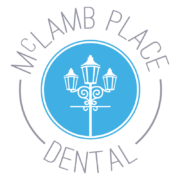Sleep apnea is a common sleep disorder that affects millions of people. It is characterized by pauses in breathing during sleep. These pauses can last for a few seconds at a time and can occur dozens of times per night. Sleep apnea can lead to serious health problems, including heart disease, stroke, and high blood pressure.
There are three main types of sleep apnea: obstructive, central, and mixed.
- Obstructive sleep apnea is the most common type, accounting for about 84 percent of cases.
- Central sleep apnea, which is less common, occurs when the brain doesn’t send the right signals to the muscles that control breathing.
- Mixed sleep apnea is a combination of the two.
If you think you may have sleep apnea, it is important to visit a sleep lab for proper diagnosis; from there, our team members will be by your side to present the best treatment options available. There are several treatments that can help improve your quality of life, and one of the most successful and least invasive options is oral appliance therapy.
To learn more about sleep apnea and oral appliance therapy, please read below! Call our Goldsboro, NC office today if you have any questions.
Symptoms of Sleep Apnea
The most common symptom of sleep apnea is snoring. However, not everyone who snores has sleep apnea. Other symptoms include:
- Waking up gasping for air
- Waking up with a headache or dry mouth
- Feeling tired during the day
- Trouble concentrating
- Moodiness or irritability
Risk Factors
There are several risk factors for sleep apnea, including the following:
- Age: Sleep apnea is more common in older adults.
- Weight: People who are overweight or obese are at greater risk for sleep apnea.
- Neck circumference: People with thicker necks are more likely to have sleep apnea.
- Family history: Sleep apnea can be inherited.
- Nasal obstruction: People with nasal congestion or other problems with airflow through the nose are at greater risk for sleep apnea.
- Smoking: Smoking increases the risk of sleep apnea.
- Alcohol use: Drinking alcohol before bed can make sleep apnea worse.
- Sleep position: People who sleep on their backs are more likely to have sleep apnea.
Oral Appliance Therapy
Oral appliance therapy is a treatment option for mild to moderate sleep apnea. It involves wearing a custom-fit mouthpiece during sleep. The mouthpiece helps keep your airway open by bringing your lower jaw and tongue forward.
Oral appliance therapy is usually recommended for people who prefer not to use CPAP machines and are seeking a less invasive form of treatment. There are many different types of oral appliances available. Our team can help you choose the best one for you based on your individual needs.
If you think you might benefit from oral appliance therapy, please call us today to schedule an appointment. We look forward to helping you get the restful sleep you deserve!
Providing Relief For Your Sleep Apnea
Our team at McLamb Place Dental knows you deserve a restful night of sleep, and we’re dedicated to treating your sleep apnea. Our treatments are tailored to fit your individual needs so you can finally get the restful sleep you need. If you suffer from sleep apnea, contact McLamb Place Dental today. We will work with you to create a treatment plan that will help improve your quality of life!


